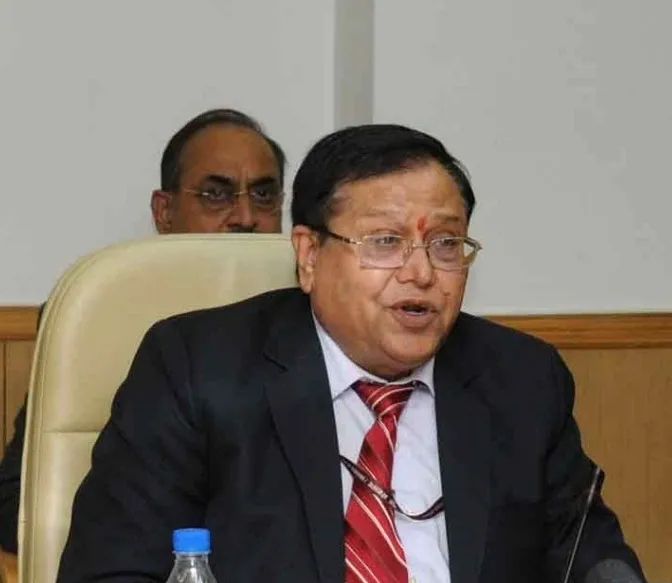How Can We Steadfastly Pursue Atmanirbhar Bharat for Strategic Independence?

Synopsis
Key Takeaways
- V. K. Saraswat highlights the need for strategic independence.
- Atmanirbhar Bharat is key to achieving self-reliance.
- Indian scientists play a pivotal role in national advancements.
- Technological innovations are aimed at addressing societal needs.
- Five technologies were formally transferred to promote real-world applications.
Thiruvananthapuram, May 14 (NationPress) NITI Aayog member V. K. Saraswat emphasized the necessity of achieving strategic independence across vital sectors to protect national sovereignty and foster growth driven by technological innovation.
He characterized Atmanirbhar Bharat as the quest for freedom from external influences.
"By persistently adhering to the principles of Atmanirbharta, we can secure strategic autonomy, resilient supply chains, domestic innovation capabilities, and technological sovereignty," stated Saraswat.
This declaration was made while he was addressing the audience at the CSIR-National Institute for Interdisciplinary Science and Technology (CSIR-NIIST), which was commemorating National Technology Day with a special program focused on IP Monetisation and Technology Transfer as part of the institute's Golden Jubilee celebrations.
Saraswat praised the integral role of the Indian scientific community in promoting self-sufficiency, referencing their recent contributions to Operation Sindoor as a confirmation of India’s escalating capabilities.
"The nation's scientists, in conjunction with the armed forces, have been vital in enhancing India's global reputation and pride. It is crucial to transition India’s Intellectual Property landscape from 'portfolio to performance'," he remarked.
Director of CSIR-NIIST, Anandharamakrishnan, underscored the significance of the technologies innovated by CSIR-NIIST, stressing their applicability in meeting critical societal and industrial demands, particularly in strategic sectors.
"Ten transformative technologies aimed at nation-building from CSIR-NIIST were showcased, with a promise to deliver by 2027. CSIR-NIIST is committed to developing solutions that are scientifically robust, industrially relevant, and socially impactful," declared the director.
During the event, a formal transfer of five technologies developed by CSIR-NIIST took place.
These technologies were handed over by Anandharamakrishnan, with each transfer marking a significant step towards real-world application and societal benefit.
Technologies including fruit roll-ups, jackfruit-based products, millet-based instant mixes, natural syrups, and banana grits were conveyed to H. Dineshan, IAS, Executive Director of the Kudumbashree State Mission, Kerala.
Another technology transferred was the engineered microbiome technology, JAIVAM, designed for expedited aerobic composting of organic waste.
This gathering highlighted the institute's legacy of innovation and its commitment to delivering science that enhances lives.







